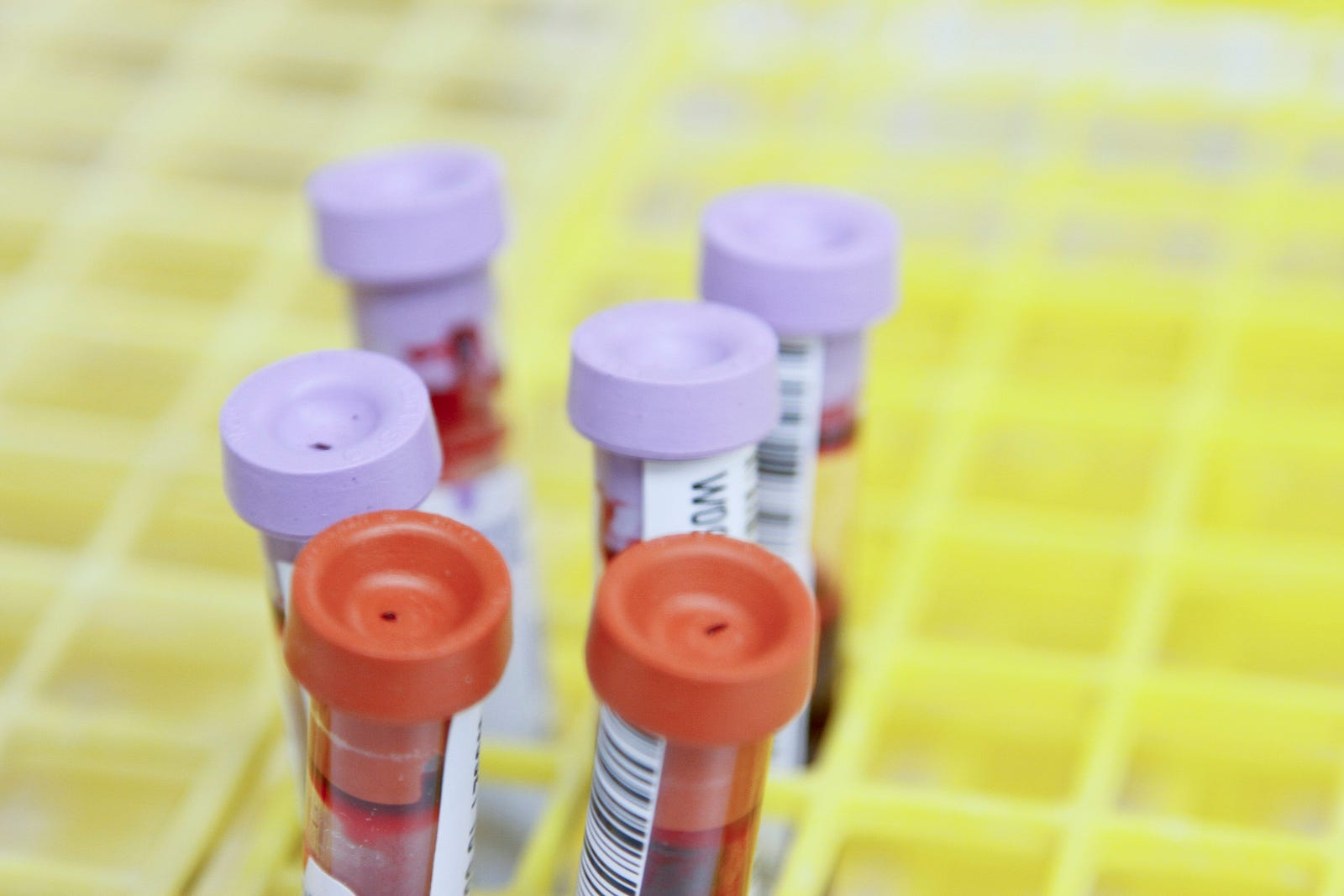Today, I want to discuss a new blood test for Alzheimer’s dementia.
I have very few fears.
One of my deepest fears is the prospect of dementia.
I don’t like the idea of being dependent on others.
You can imagine this new finding caught my attention:
A simple blood test appears to detect Alzheimer’s disease with 91 percent accuracy, far surpassing the diagnostic capabilities of primary care and neurology doctors.

Today, I will explore the promising reality offered by this groundbreaking study in the Journal of the American Medical Association.
Imagine
Imagine a world where a simple blood test could detect Alzheimer’s disease with 91 percent accuracy, offering a potential relief from the fear of uncertainty and dependency, far surpassing the diagnostic capabilities of most primary care physicians.
This finding isn’t just a scientific breakthrough but a potential game-changer for the healthcare system.
Context
Here’s some perspective:

The Alzheimer’s Association estimates that the lifetime risk for Alzheimer’s at age 45 is 1 in 5 for women and 1 in 10 for men.
Nearly 7 million Americans have Alzheimer’s.
The number of Americans living with Alzheimer’s is growing — and growing fast.
Across the Globe
The global prevalence of dementia, a devastating condition affecting cognitive function, reached a staggering 55 million individuals in 2020.
Alarmingly, epidemiologists project this:
The number of folks with dementia will nearly double every two decades, with an estimated 78 million cases in 2030 and a potential surge to 139 million by 2050.

This escalating crisis demands global attention and resources to address this growing public health concern.
New Blood Test for Alzheimer’s
Diagnosing Alzheimer’s dementia can be challenging.
A recent study by Palmqvist et al. investigated the effectiveness of a new blood test called APS2 in diagnosing Alzheimer’s disease.
The blood test measures the ratio of specific proteins in the blood, p-tau217, and amyloid-β, which are known to be associated with Alzheimer’s pathology.
Researchers evaluated the test’s accuracy in two groups of patients in Sweden: those seeking care in primary care settings and those in specialty care clinics.
New Blood Test for Alzheimer’s – Results
Researchers discovered this:
The APS2 blood test was significantly more accurate in predicting Alzheimer’s disease than clinical evaluations alone.

The blood test’s accuracy was 91 percent in primary and specialty care settings, compared to 61 percent and 73 percent accuracy, respectively, for clinical evaluations alone.
The study also highlighted that the percentage of p-tau217 was the most significant factor in the test’s predictive accuracy, suggesting its potential as a key biomarker for early Alzheimer’s detection.
My Thoughts – New Blood Test for Alzheimer’s
I think that this new blood test is remarkably promising.
However, some challenges remain.
For example, the technology used to analyze the blood samples is complex and might be challenging or costly in every doctor’s office.
Second, scientists are developing other tests that could be as good or even better.

Other Concerns – New Blood Test for Alzheimer’s
Third, the study subjects were primarily from a single ethnic and racial group in Sweden.
We shall see if the test works in various demographics.
Finally, we will need government (and insurance companies) approvals in the United States before we can embrace such testing for everyone.
Final Thoughts – New Blood Test for Alzheimer’s
This recent study suggests that changes in certain blood markers during midlife may indicate an increased risk of developing dementia later in life.
Notably, common conditions like high blood pressure and diabetes seem to be linked to these changes.
These observations raise the possibility that better management of these conditions could potentially lower the risk of dementia.
However, the study also points out that while these blood markers are helpful at a broader population level, they still need to be more reliable to predict individual risk in midlife.
This means more research is needed before using these markers to determine a specific person’s dementia risk.
Summary
We reviewed the groundbreaking discovery of a blood test that can detect Alzheimer’s disease with 91 percent accuracy, surpassing the diagnostic capabilities of primary care and neurology doctors.
I also highlighted the potential for better managing common conditions like high blood pressure and diabetes to reduce dementia risk.
Thank you for reading “New Blood Test 91% Accurate at Diagnosing Alzheimer’s, Outperforms Doctors.” Please consider signing up to follow this blog site.




